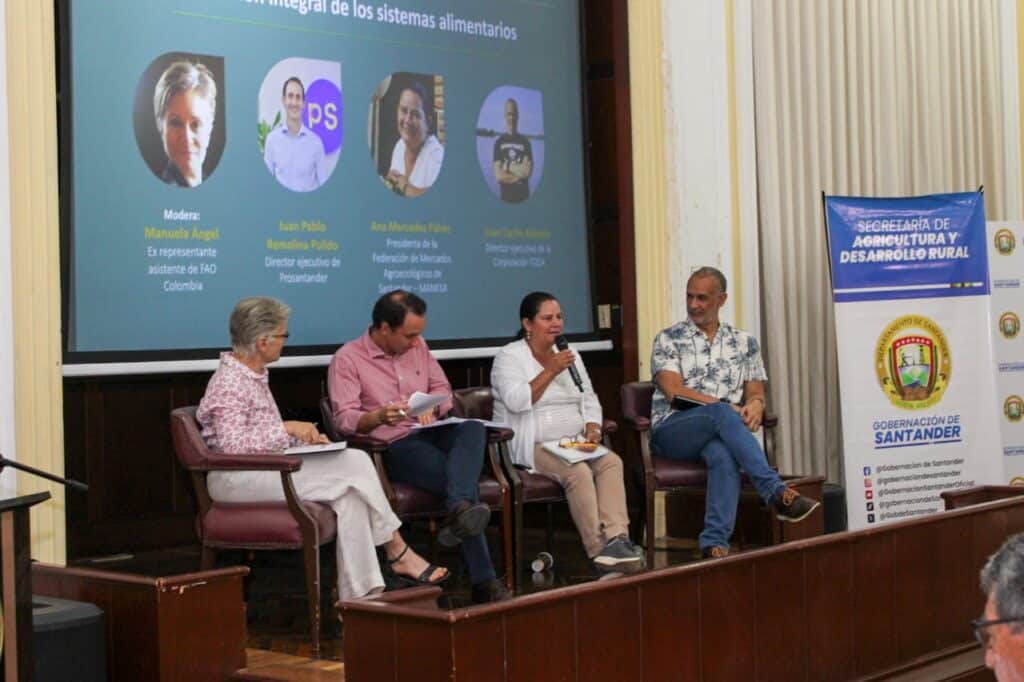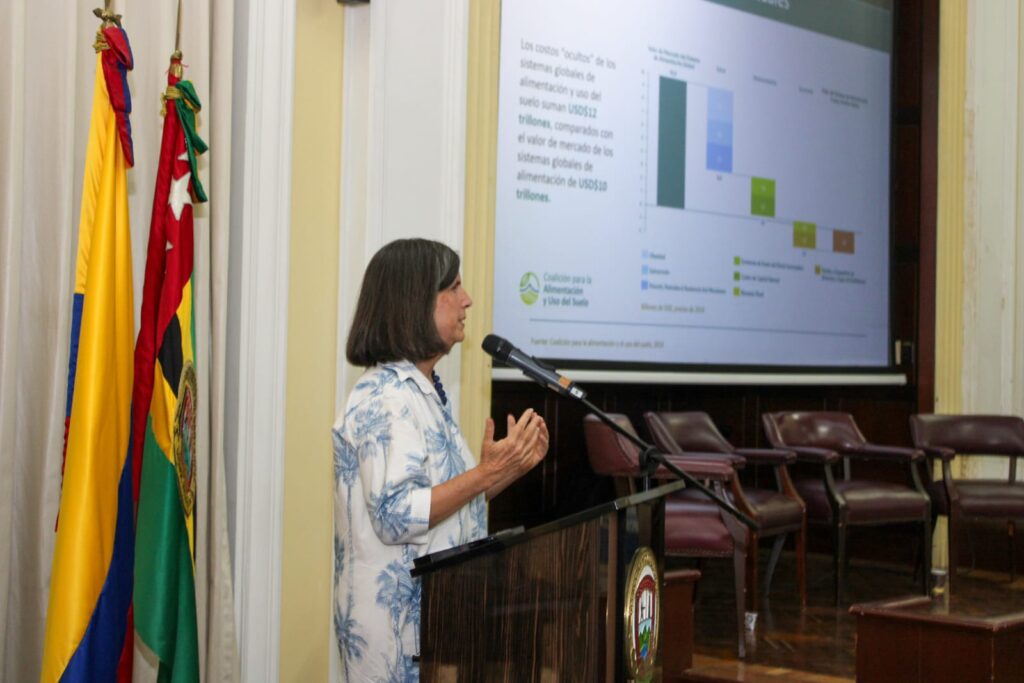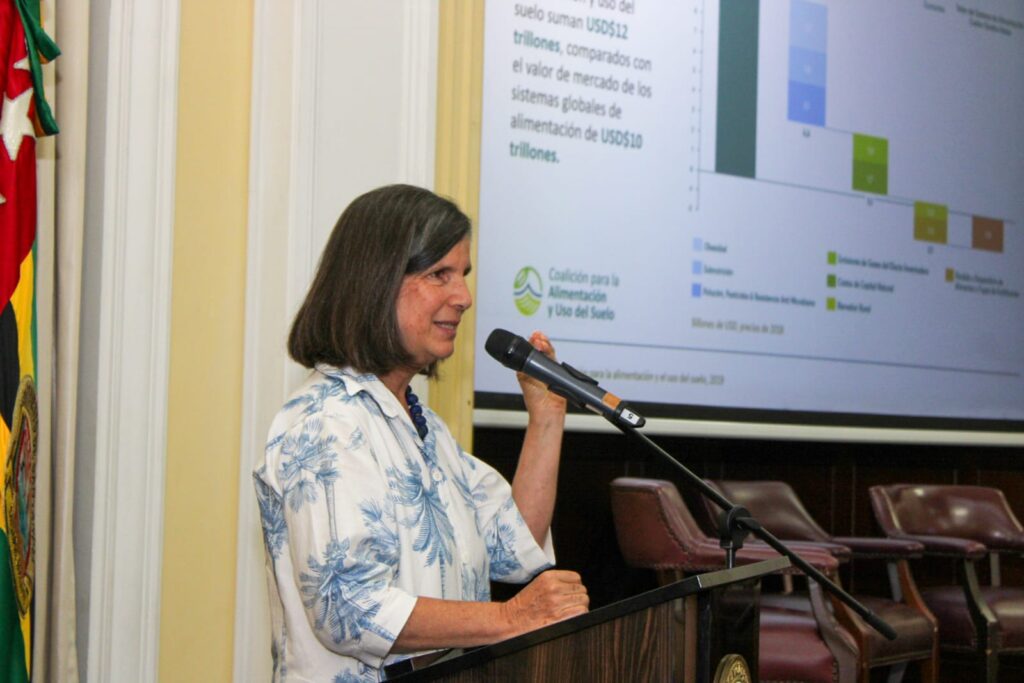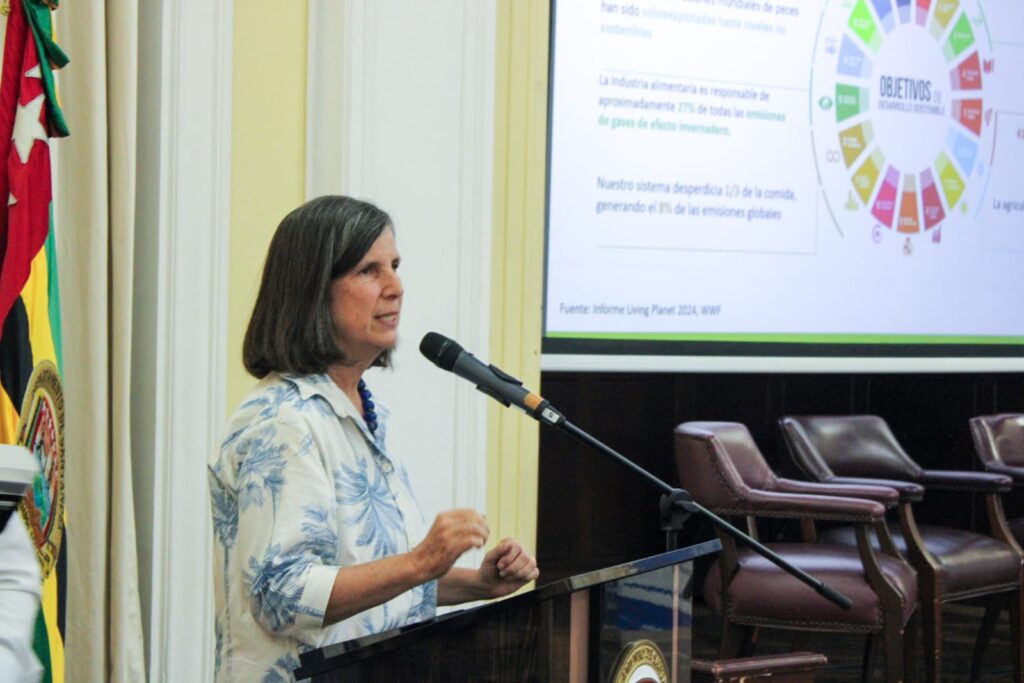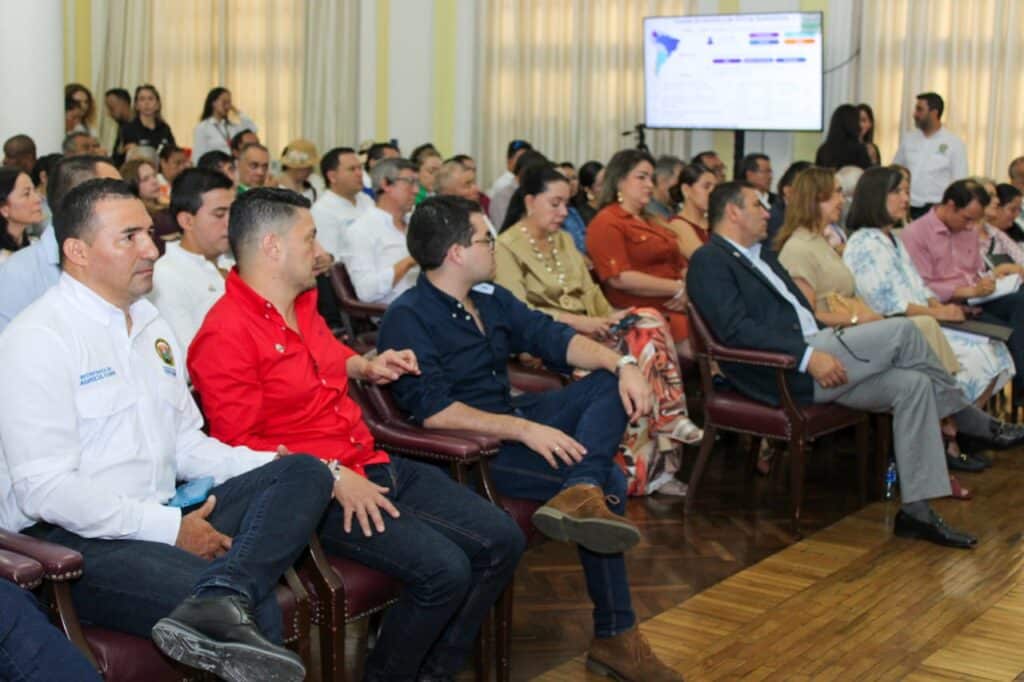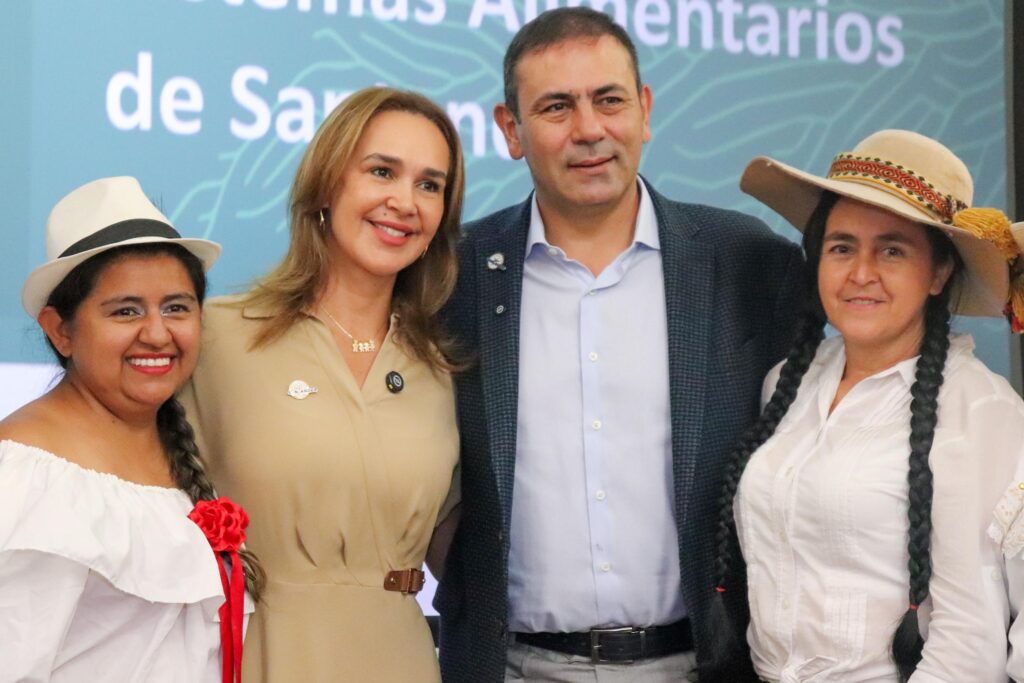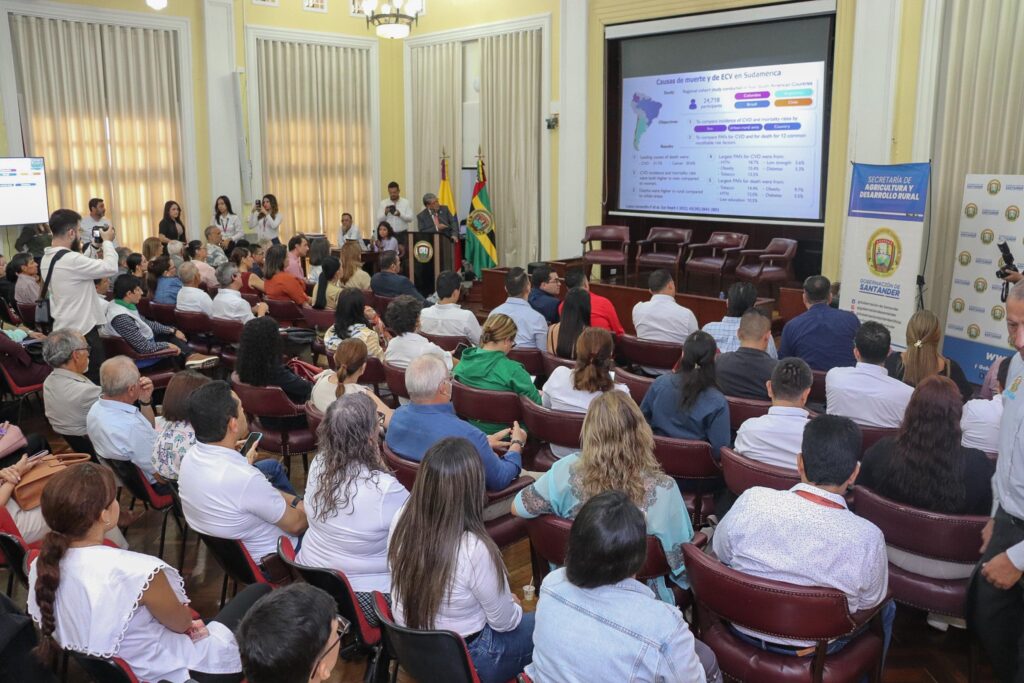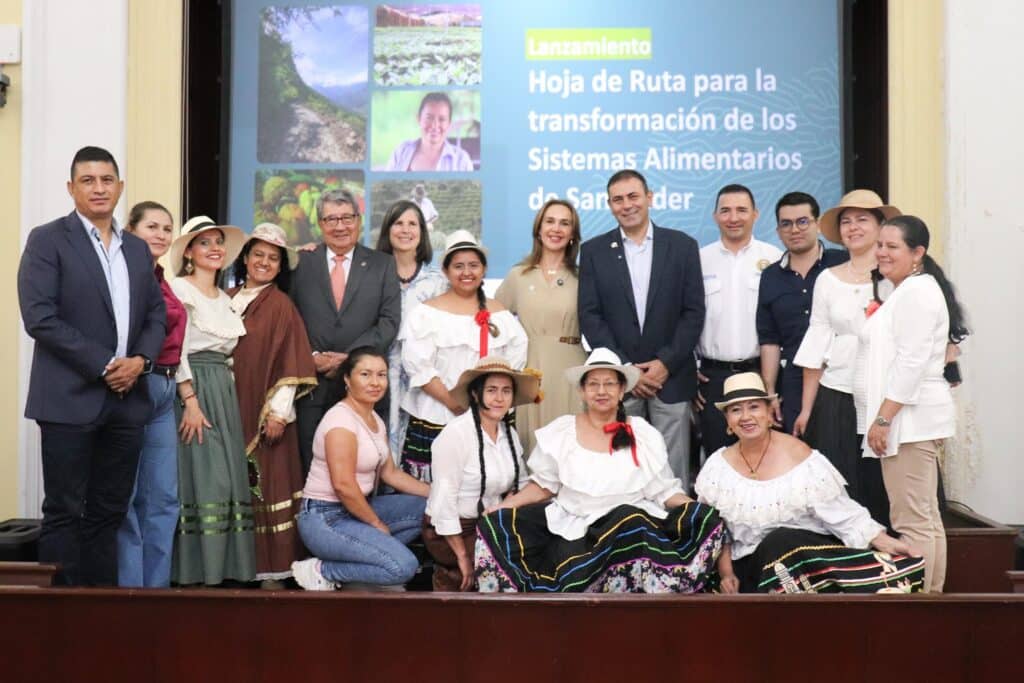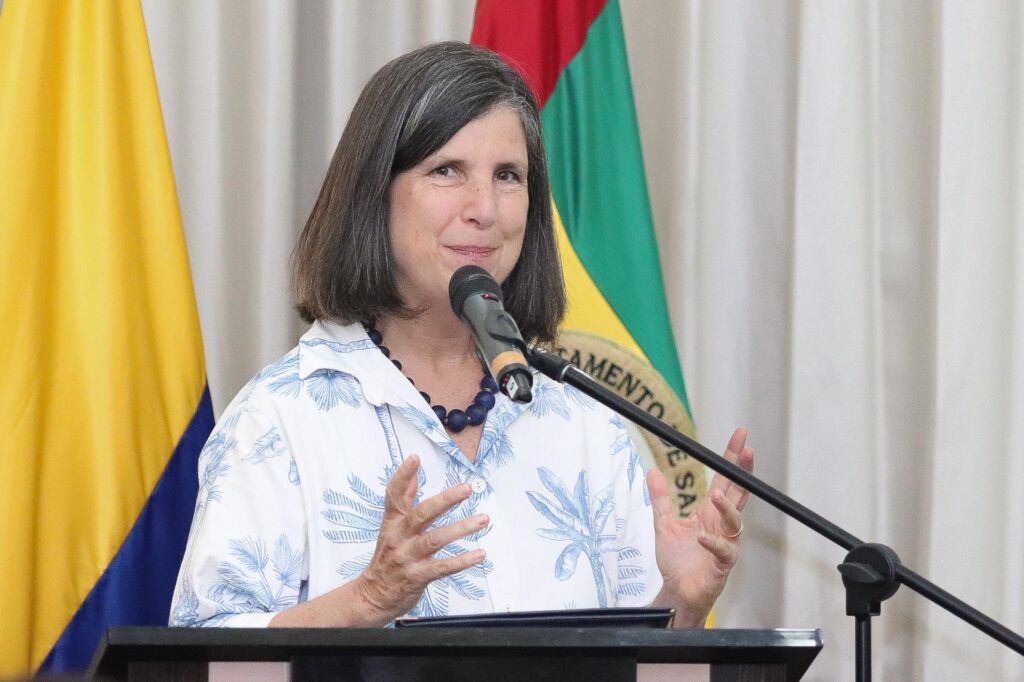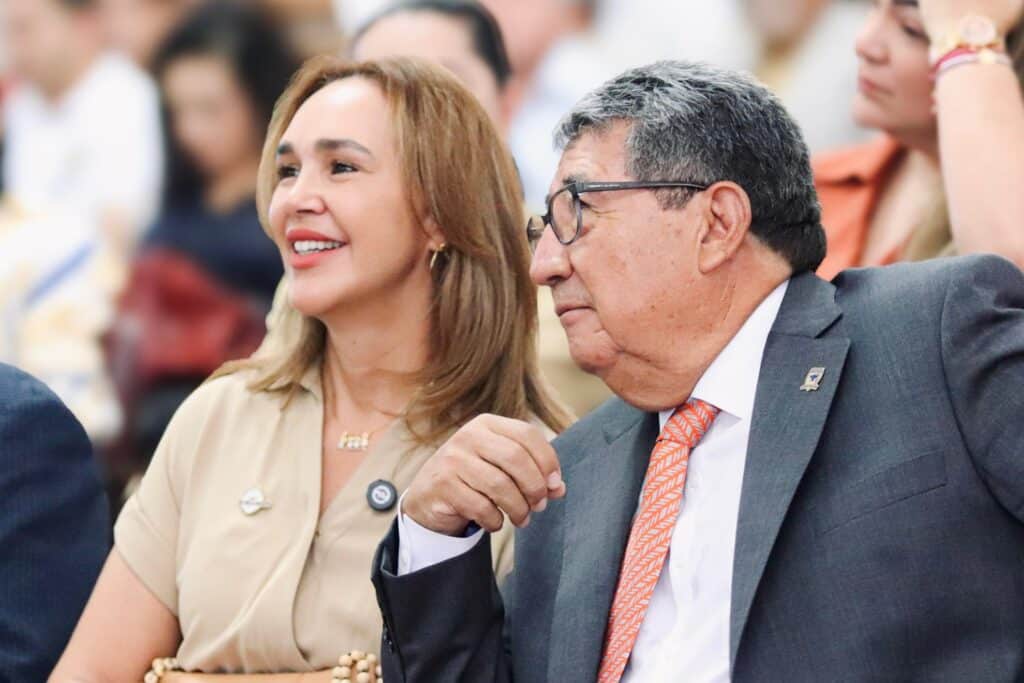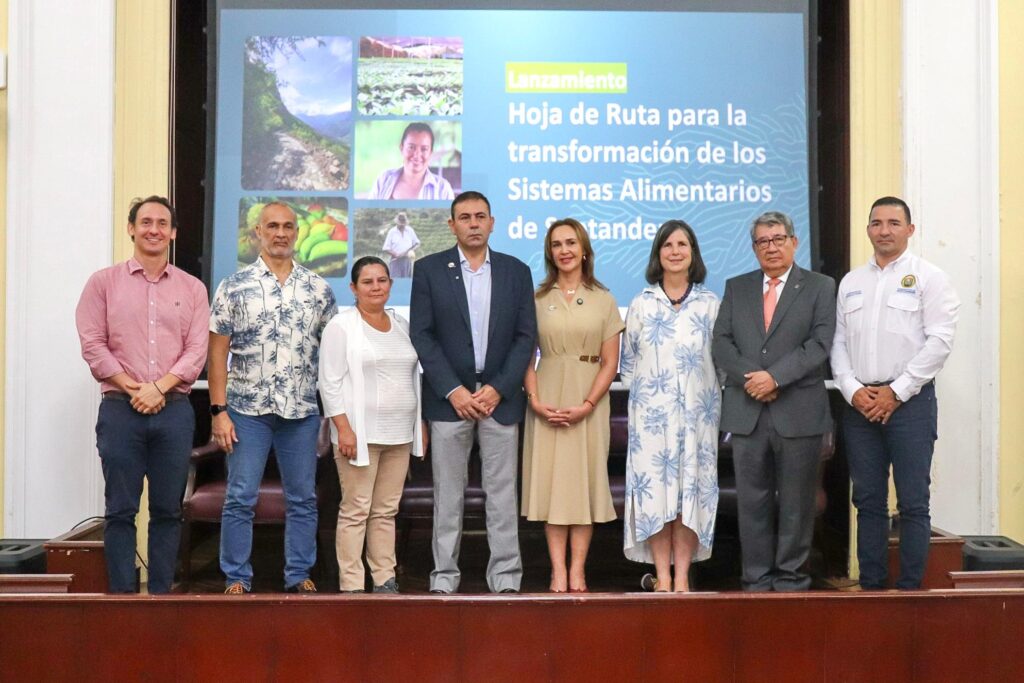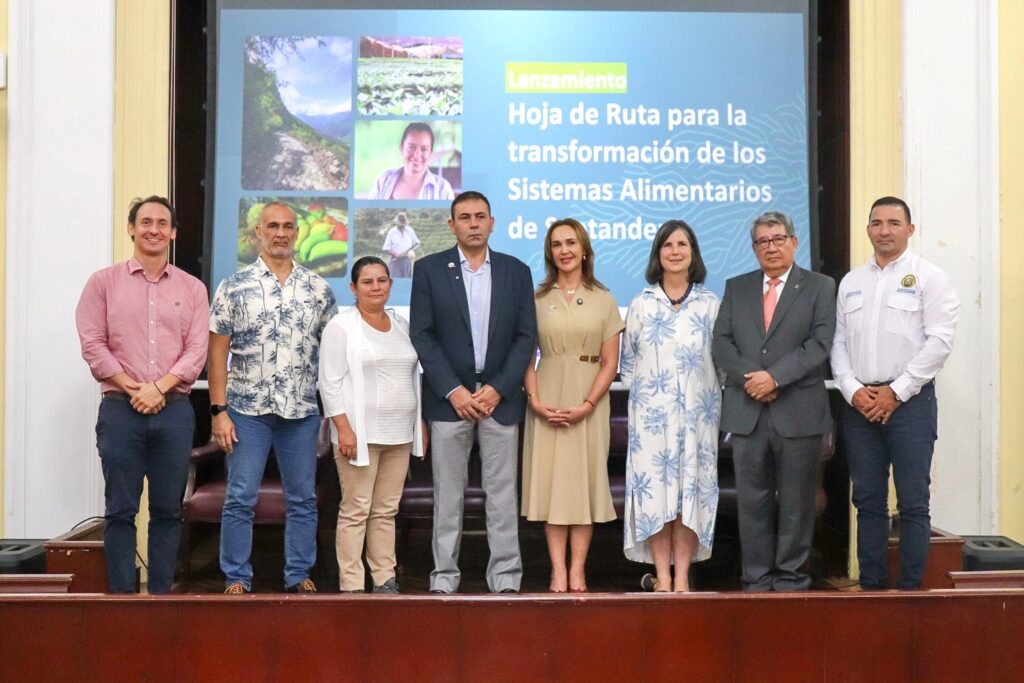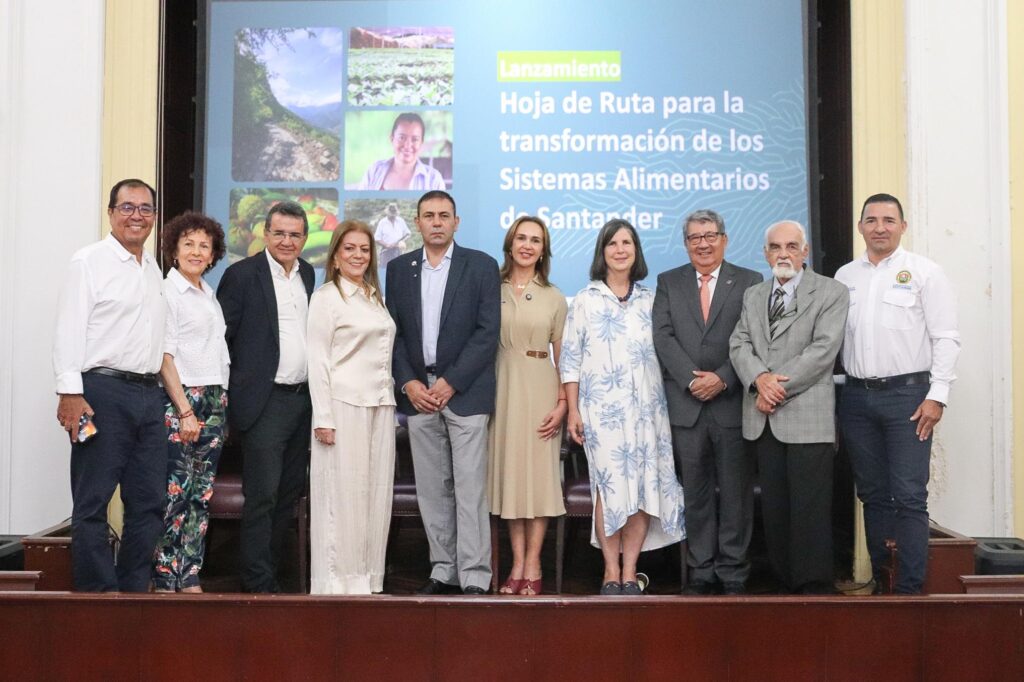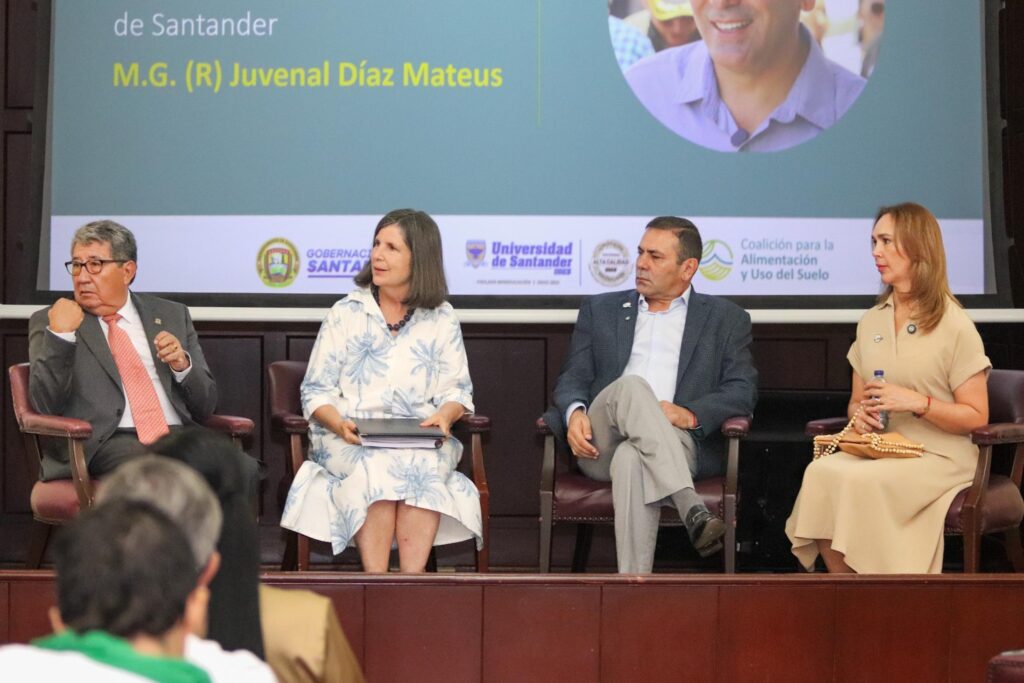Colombia, May 12, 2025. The ‘Roadmap for the Transformation of Food Systems of Santander, Colombia’ was recently presented as a strategic effort with a 2035 vision to build fairer, regenerative, and more productive food systems. This initiative is the result of joint work between the Government of Santander (a department in northeastern Colombia), the University of Santander (UDES), and the Food and Land Use Coalition (FOLU), coordinated in Colombia by E3 – Ecology, Economy, and Ethics.
The 2035 Vision seeks for Santander to transform its food systems into powerful engines of development, equity, and health, driving an innovative, diversified, and regenerative agricultural sector, efficient and inclusive markets and enterprises, restored and connected landscapes and water sources, achieving a more conscious, healthy, and nutritious diet for the lasting well-being of its inhabitants.
The construction of the Roadmap involved the active participation of over 450 key stakeholders from various sectors across the provinces of Santander, including the public sector, private companies, civil society organizations, trade associations, and academia. The process began with a detailed diagnostic of the food systems in Santander, identifying the region’s specific strengths, challenges, and opportunities.
According to Major General (r) Juvenal Díaz Mateus, Governor of Santander, Colombia, “through the implementation of this Roadmap, we aim for Santander to become a national reference point for the transformation of food systems. From the Government, we want to comprehensively promote the pillars of this roadmap, including achieving productive, regenerative, and biodiverse landscapes, diversifying the foods we produce, creating diverse and equitable markets, fostering awareness, nutrition, and health, alongside innovative models of education, science, and technology”.
Victoria Eugenia Casallas Lozano, First Lady of Santander, added: “We need effective strategies to educate, raise awareness, and mobilize the population, promoting more sustainable and responsible eating habits. The future of Santander—and of Colombia—is in everyone’s hands. It is time to join forces to build a food system that ensures health, equity, and sustainability for all, positioning the department as a center of health and nutrition”.
Why talk about food systems?
Food systems play a central role in the well-being of societies, human health, and the balance of ecosystems. However, they currently face a series of global challenges that require immediate responses. With the world population expected to reach 8.5 billion by 2030, food systems must overcome major challenges to guarantee food security. It is essential to increase agricultural productivity in a regenerative way while protecting and restoring ecosystems, generating equitable markets, and achieving nutrition and health schemes for the well-being of both people and the planet.
Some alarming global figures:
- Food systems are responsible for 80% of biodiversity loss, 80% of deforestation, and 70% of freshwater use.
- The hidden costs of global food and land use systems amount to USD 12 trillion, while the global food system market is valued at USD 10 trillion, meaning the current systems are generating large-scale economic and social losses.
- 29% of greenhouse gas emissions come from the food supply chain, from farm to table.
- 35% of the food produced globally is wasted.
Food systems in Santander, Colombia
Although Santander is one of Colombia’s leading food-producing regions—standing out in products such as coffee, cocoa, fruits, vegetables, and meat—it also faces significant challenges affecting both production and access to healthy, quality food:
- 58% of the territory is in land-use conflict; 42% is overused, and 16% underused. Additionally, 10.7% of the total area is affected by desertification.
- In 90% of Santander’s municipalities, the agricultural sector is the main economic activity.
- 3 out of 4 municipalities are identified as high-risk food insecurity zones due to climate change.
- 34.8% of the population cannot afford to eat a diverse diet that includes fruits and vegetables daily.
Claudia Martínez, Director of FOLU Colombia, emphasizes that “this Roadmap is an invitation to rethink the future of the department by promoting food systems that ensure the well-being of its people. Santander, located in northeastern Colombia, has all the potential to lead a profound transformation of its food systems by connecting stakeholders, restoring landscapes, and strengthening the link between rural and urban areas. This 2035 vision sets a clear path for advancing with determination and commitment”.
Strategic pillars of the Roadmap
The four strategic pillars of the Roadmap are: productive, regenerative, and biodiverse landscapes; diverse supply, transformation, and market systems; health, nutrition, and awareness; and education, innovation, science, and technology.
A series of change proposals are outlined to drive the transformation of food systems in Santander, Colombia, such as:
- Harmonizing and articulating territorial planning and promoting the formalization and allocation of land.
- Promoting nature-based solutions for the conservation of strategic ecosystems.
- Boosting productive, regenerative, and resilient agricultural and fishing production, with diversification and innovation, reducing food losses.
- Supporting collaborative, associative, and solidarity-based processes to foster efficient distribution and supply systems.
- Prioritizing the development of infrastructure, technology, and innovation to make the commercialization, transformation, and logistics of agricultural products more efficient.
- Promoting ventures in productive, regenerative, and innovative value chains.
- Improving diets and nutrition to ensure the health of all Santander residents.
- Generating strategies that influence behavior change regarding the acquisition, preparation, and consumption of safe and healthy food.
- Strengthening and implementing public and private initiatives to reduce Food Loss and Waste (FLW).
Patricio López Jaramillo, Chancellor of the University of Santander, UDES, emphasized: “It is very important that within the public policies of the department, food security is a priority. We had the opportunity to collaborate from academia, together with governance and the private sector, to ensure that the population of Santander can have free and permanent access to a healthy diet”.
Ana Mercedes Flórez Ochoa, President of the Agroecological Farmers’ Markets of Santander, highlighted the importance of this Unified Action strategy. “I applaud the initiative of the Roadmap for the Transformation of Food Systems, with an emphasis on agroecological markets, which are environmentally friendly, cultivating diversified foods free of agrochemicals to bring healthy food to the tables of Colombian homes”.
